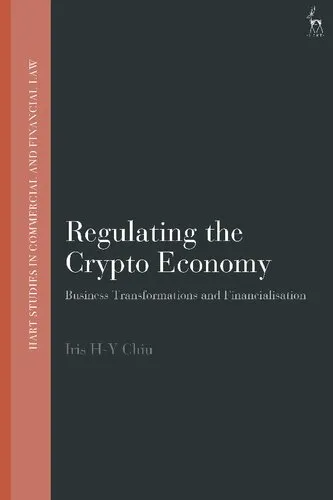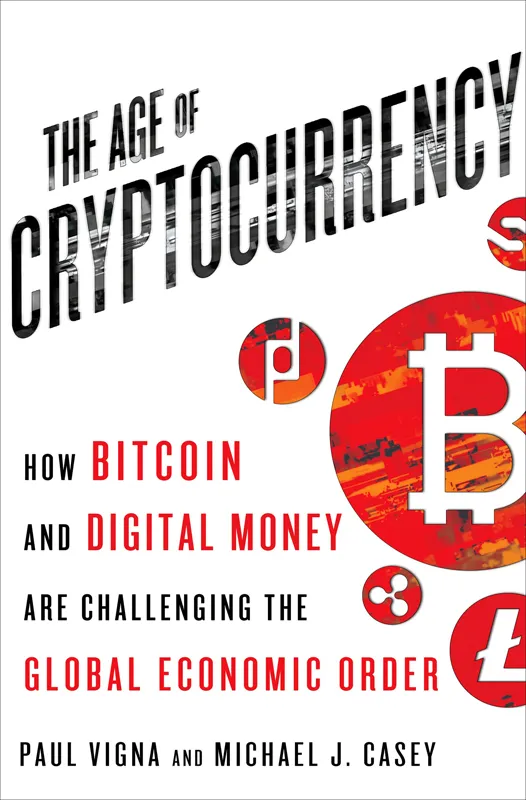Regulating the Crypto Economy: Business Transformations and Financialisation
4.0
Reviews from our users

You Can Ask your questions from this book's AI after Login
Each download or ask from book AI costs 2 points. To earn more free points, please visit the Points Guide Page and complete some valuable actions.Related Refrences:
Introduction to "Regulating the Crypto Economy: Business Transformations and Financialisation"
The rapid expansion of digital innovation has deeply altered global financial systems, and at the heart of this transformation is the emergence of cryptocurrencies and blockchain technologies. "Regulating the Crypto Economy: Business Transformations and Financialisation", authored by Iris H-Y Chiu, provides a deep and analytical exploration of these developments. It focuses on the evolution of the crypto economy, its potential to disrupt traditional financial systems, and the necessity of robust regulatory frameworks to maintain stability and public trust.
This book dives into the intricacies of cryptocurrencies, decentralised finance (DeFi), tokenisation, and blockchain technologies to uncover how these innovations are re-shaping markets, investments, and financial conventions. It explores the tension between innovation and regulation, underscoring how policymakers and industry stakeholders navigate the challenges of creating frameworks that safeguard public interests while fostering innovation.
Whether you're an academic, entrepreneur, financier, policymaker, or simply an enthusiast keen on understanding the implications of crypto adoption, this book offers an invaluable roadmap for grappling with the complexities of this novel economic paradigm.
Detailed Summary
"Regulating the Crypto Economy" discusses the convergence of technology, economics, and law, with a primary focus on cryptocurrencies as a transformative force in the financial landscape. The book offers a cohesive narrative that starts with the origins of cryptocurrencies, the growth of the blockchain ecosystem, and the economic transformations driven by decentralised technologies.
The book delves into critical topics, such as cryptocurrency usage in payments and financial services, the rise of decentralised finance (DeFi), and the complexities of tokenising assets and securities. It also unpacks issues surrounding investor protection, market volatility, money laundering, and the challenges of sovereign regulatory frameworks when tackling global phenomena like cryptocurrencies.
A substantial portion of the book is dedicated to discussing financialisation through cryptocurrencies. By analysing how blockchain technologies underpin new forms of value accumulation, capital mobilisation, and market instruments, the book explains the societal and systemic impacts of these transformations. Simultaneously, it addresses the tension between decentralisation ideals and the reality of centralised governance structures required for regulatory oversight.
Ultimately, the book advocates well-balanced regulatory infrastructures. It doesn’t dismiss innovation but argues that sound governance, trust, and transparency are essential for the sustained growth of the crypto economy.
Key Takeaways
- Cryptocurrencies and blockchain technologies are reshaping businesses, governance, and financial systems on a global scale.
- Proper regulation is critical to mitigating risks such as fraud, financial instability, and illicit activities in the crypto economy.
- Decentralised finance (DeFi) platforms challenge traditional financial intermediaries but raise concerns about governance and consumer protections.
- Technological innovation and regulation must coexist to foster trust and sustainability in the crypto landscape.
- The cryptocurrency market represents a complex interplay between decentralisation ideals and centralisation requirements of practical governance.
Famous Quotes
"In a world increasingly shaped by code, the line between technology and public governance is thinning, raising questions of accountability, ethics, and trust."
"Crypto-assets are not just financial instruments; they are embedded in narratives of disruption, empowerment, and the re-imagination of economic structures."
"Regulation should not suppress innovation; it must strike a balance, nurturing the integrity of markets while holding the door open to technological progress."
Why This Book Matters
This book is highly significant in today's context of digital transformation and the rise of decentralised economies. Cryptocurrencies and DeFi are no longer fringe innovations; they are influencing mainstream finance and societal systems globally. However, these shifts come with complexities requiring intellectual engagement and regulatory foresight.
"Regulating the Crypto Economy" brings clarity to this complex subject, offering a balanced perspective that combines academic rigour, empirical insights, and policy recommendations. It addresses a key challenge of our time: how to govern transformative technological revolutions without stifling their potential.
As humanity navigates unprecedented changes in financial technology, this book equips readers with the tools to understand, critique, and contribute meaningfully to a future in which innovation and regulation coexist in harmony.
Free Direct Download
You Can Download this book after Login
Accessing books through legal platforms and public libraries not only supports the rights of authors and publishers but also contributes to the sustainability of reading culture. Before downloading, please take a moment to consider these options.
Find this book on other platforms:
WorldCat helps you find books in libraries worldwide.
See ratings, reviews, and discussions on Goodreads.
Find and buy rare or used books on AbeBooks.
1197
بازدید4.0
امتیاز0
نظر98%
رضایتReviews:
4.0
Based on 0 users review
Questions & Answers
Ask questions about this book or help others by answering
No questions yet. Be the first to ask!














